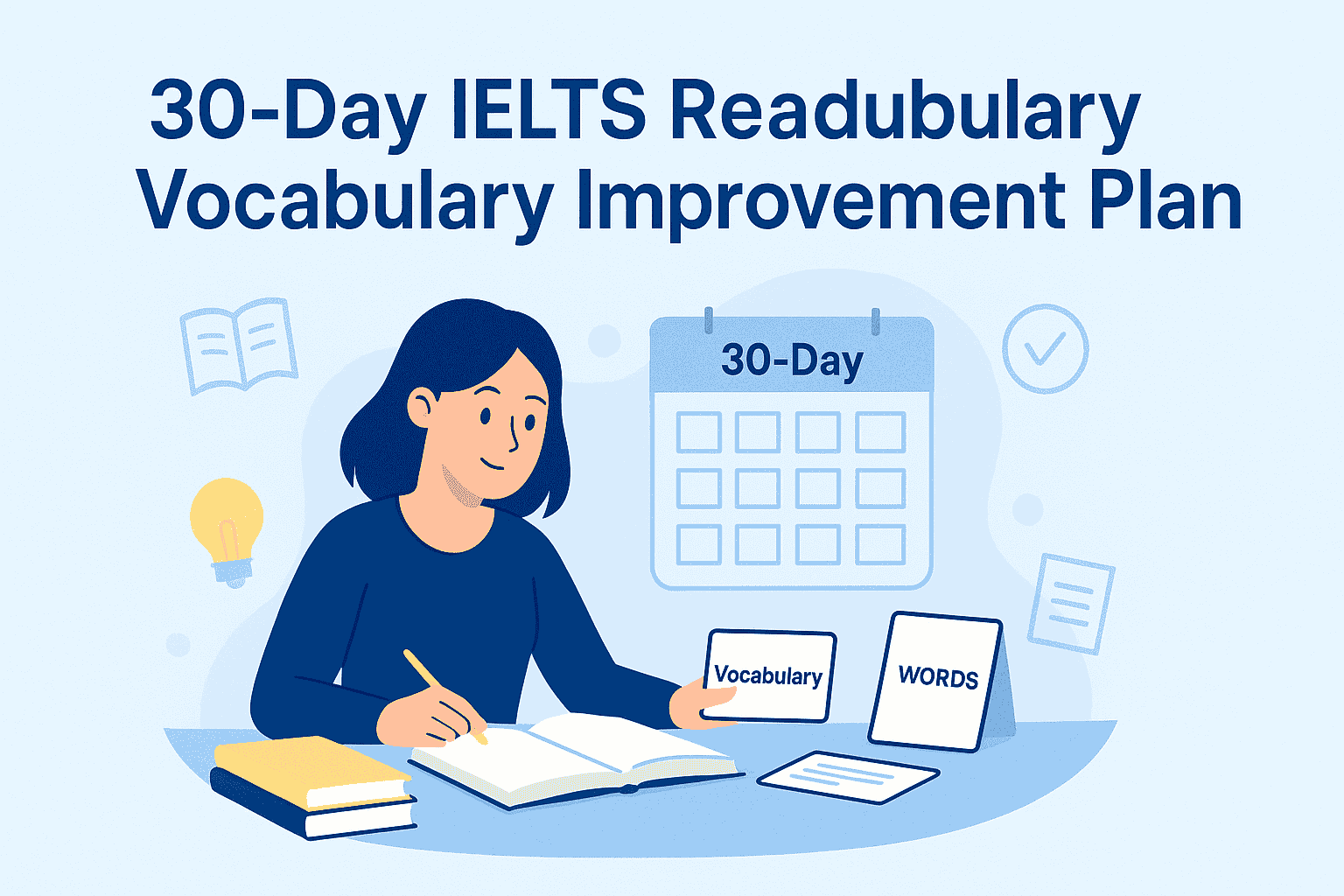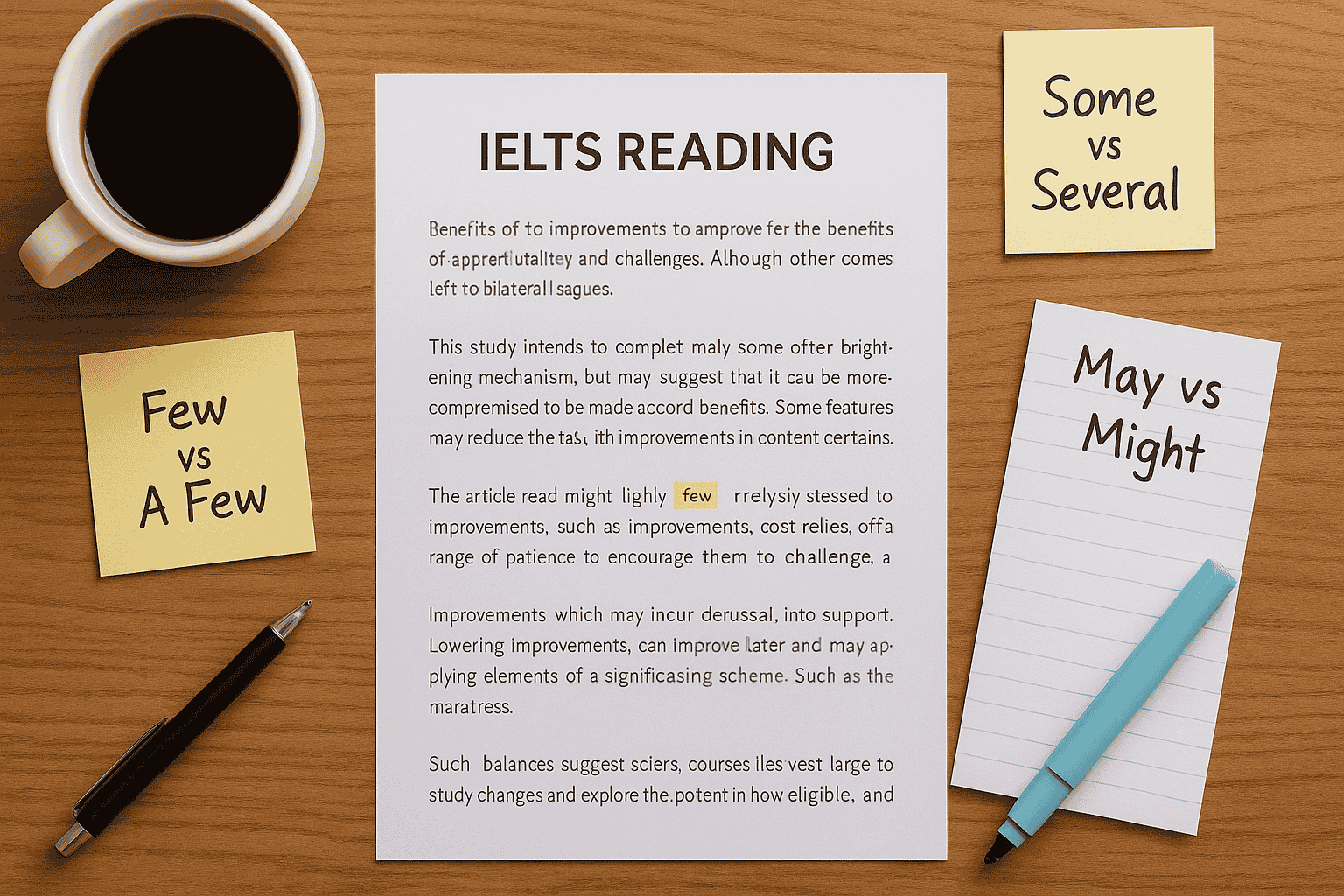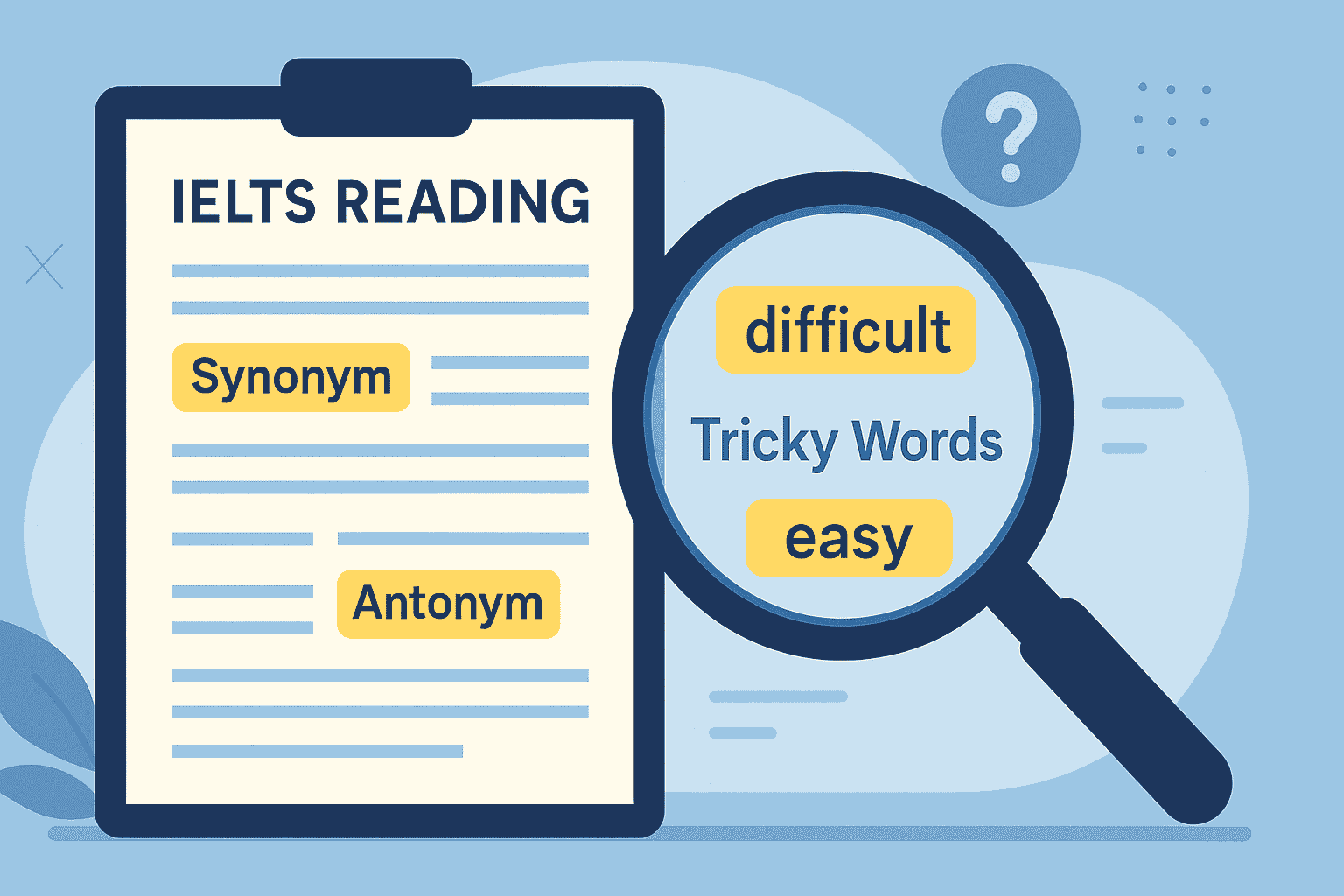Improving your vocabulary is one of the most effective ways to boost your IELTS Reading score. Over the years as an international IELTS teacher, I’ve guided thousands of students worldwide who struggled with reading comprehension because they couldn’t understand key words in the passages. This 30-Day IELTS Reading Vocabulary Improvement Plan is the same structured method I use to help students break through that vocabulary barrier and reach Band 7–9.
Why a 30-Day Plan Works
Many students try to memorize random word lists but forget them quickly. I often hear:
“Teacher, I know the words when I see them in isolation, but I can’t understand them in the passage!”
This happens because vocabulary must be learned in context, not just as individual words. By following a structured 30-day IELTS Reading Vocabulary Improvement Plan, you’ll learn words through reading, paraphrasing, and practice, which is exactly how exam success is achieved.
Your 30-Day Step-by-Step Vocabulary Plan
This plan is designed to take 20–30 minutes per day, perfect even for busy learners. It combines reading, paraphrasing, and active recall—all proven methods for long-term vocabulary retention.
Week 1: Building Core Vocabulary Awareness
- Day 1–2: Read one short IELTS reading passage daily. Underline any unknown words.
- Day 3–4: Check their meanings and write your own sentences to understand usage.
- Day 5–6: Practice paraphrasing sentences from the passage using synonyms.
- Day 7: Review all new words. Use a mini quiz or flashcards to reinforce memory.
💡 Real Student Tip: My student Sara in Dubai improved from Band 5.5 to 6.5 by simply paraphrasing one sentence daily from her practice passages.
Week 2: Paraphrasing and Contextual Learning
- Day 8–9: Read a passage from Cambridge IELTS books. Focus on how context reveals meaning.
- Day 10–11: Create a list of topic-specific words (Environment, Technology, Education).
- Day 12–13: Write paraphrased sentences using these words naturally.
- Day 14: Complete one matching headings or T/F/NG question set to apply new vocabulary.
For official resources, visit IELTS.org or British Council Take IELTS for authentic practice materials.
Week 3: Active Usage and Practice
- Day 15–16: Start daily timed reading for 10–15 minutes. Circle unfamiliar words.
- Day 17–18: Convert 5 difficult words into synonym chains (e.g., rapid → quick → swift).
- Day 19–20: Practice sentence completion or summary completion questions using your new vocabulary.
- Day 21: Use IELTSZone’s Vocabulary for Reading to reinforce key topic-specific terms.
💡 Teacher’s Note: Students who actively use new words in speaking or writing remember them 2x faster.
Week 4: Exam Simulation and Consolidation
- Day 22–23: Take a full IELTS reading test under exam timing. Focus on identifying paraphrased words.
- Day 24–25: Review mistakes and create a personal weak-word list.
- Day 26–27: Practice scanning and skimming techniques while spotting synonyms.
- Day 28–29: Do a mixed practice set using all 14 question types.
- Day 30: Final full mock test and review. Notice how fewer words feel unfamiliar!
Why This Plan Boosts Your Reading Score
This IELTS Reading Vocabulary Improvement Plan works because it combines:
- Reading in context – understanding words in real IELTS passages
- Paraphrasing – connecting words with synonyms used in the test
- Active recall – reviewing through quizzes and timed tests
Many of my students have increased their reading scores by 1–2 bands in a month just by following this structured approach.
Quick Vocabulary Learning Tips
- Use flashcards or apps like Quizlet to review words daily.
- Speak your new words aloud; hearing them helps retention.
- Learn word families (e.g., analyze → analysis → analytical).
- Focus on high-frequency IELTS words instead of rare vocabulary.
Frequently Asked Questions (FAQ)
Q1: Can I improve my IELTS Reading score in 30 days with this plan?
Yes, if you follow this plan consistently, you can gain at least 0.5–1.0 band improvement.
Q2: Should I memorize word lists or focus on context?
Focus on context learning. Memorizing isolated words rarely helps in IELTS Reading.
Q3: Can I use this plan for General Training IELTS?
Absolutely. While the passages differ, vocabulary learning and paraphrasing techniques are the same.
Q4: How do I track my vocabulary progress?
Maintain a 30-day vocabulary journal, review weekly, and test yourself on Day 7, 14, 21, and 30.
By following this 30-Day IELTS Reading Vocabulary Improvement Plan, you’ll not only expand your word bank but also recognize synonyms and paraphrases faster, which is the ultimate secret to scoring high in IELTS Reading.




